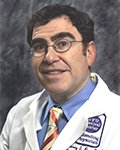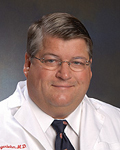Five Leading Researchers
Searching for New Options to Treat Mesothelioma
Mesothelioma is a cancer that strikes at the membrane surrounding and protecting the lungs, heart and abdomen. Mesothelioma is an unusually aggressive malignancy that resists treatment.
Exposure to asbestos causes mesothelioma. Asbestos is a mineral fiber that was used in many products, including insulation, joint compound and other construction materials, as well as brake linings and clutches, for many decades.
Inhaled or swallowed asbestos fibers penetrate tissue like needles and are tough to dislodge. Mesothelioma typically occurs between 10 and 40 years after exposure to asbestos. Because so much time passes from exposure to onset, the link between the two is not always obvious.
Current treatment options include surgery, chemotherapy and radiation, or a combination of these. A number of mesothelioma doctors are engaged in ongoing research to develop better treatments and improve survival outcomes.
Five ground-breaking researchers
1. Dr. Harvey Pass
2. Dr. David Sugarbaker
3. Dr. Katharine Carter
At the University of Strathclyde in Scotland, Dr. Carter is examining the use of an inhaler, or nebulizer, to deliver the mesothelioma chemotherapy drug cisplatin to patients. Delivery by inhaler would be a notable improvement over the current practice of injecting cisplatin. The current practice has debilitating side effects.
4. Dr. Parkash Gill
Dr. Gill and his colleagues at the USC Norris Comprehensive Cancer Center in Los Angeles have been studying the potential of receptor tyrosine kinase EphB4 as an agent against novel tumor target EphrinB2, a ligand. After testing, the data presented suggest that mesothelioma should be a target disease in clinical investigation of this novel therapy. Dr. Gill is a professor of medicine in the Division of Hematology and Pathology at USC’s Keck School of Medicine.
5. Dr. Joachim Aerts
At Erasmus Medical Center in the Netherlands, Dr. Aerts is studying dendritic cell-dependent immunotherapy. This uses a vaccine that harnesses the body’s own immune system to target and destroy mesothelioma cells. A recent, small-scale study of the DC vaccine showed promise.


